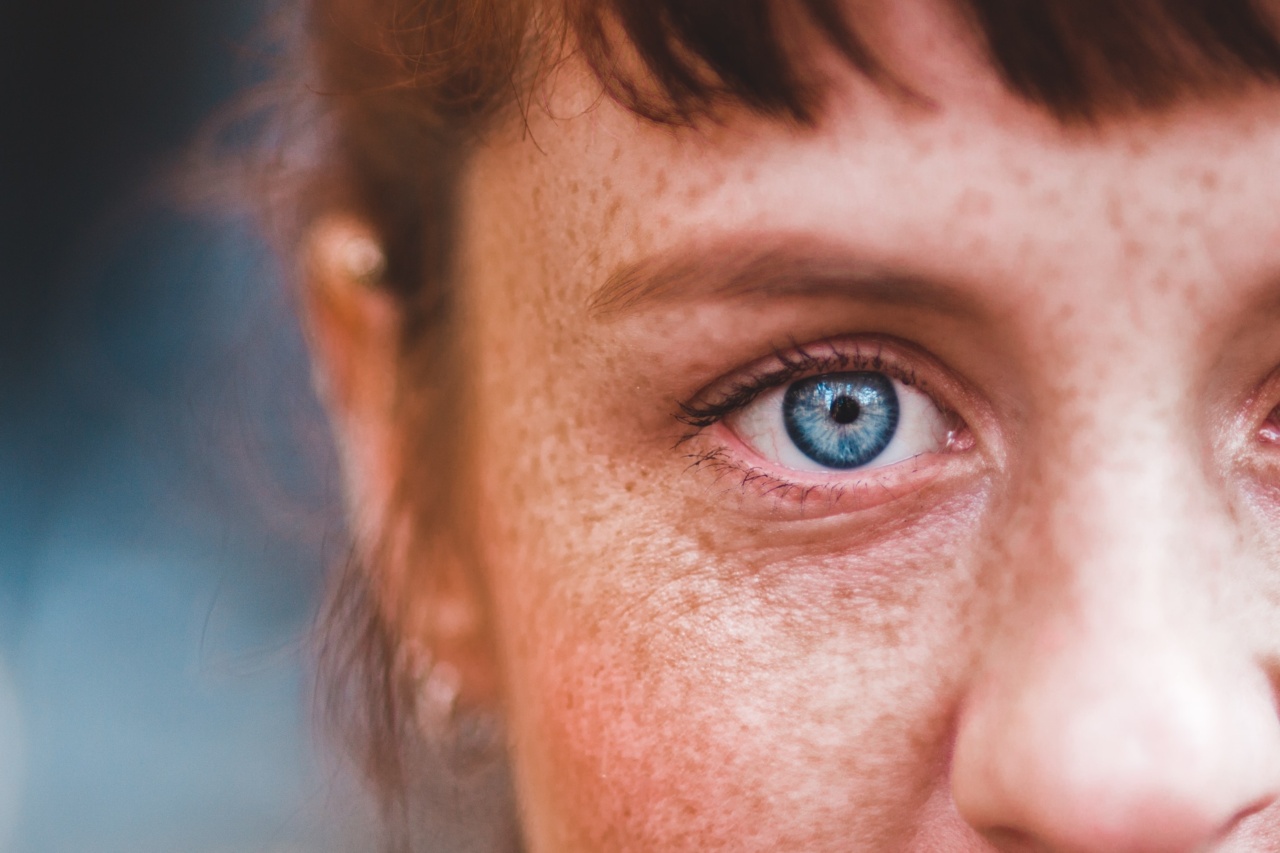Have you ever experienced involuntary eye throwing or eye twitching? It’s a common occurrence where your eyelid spasms uncontrollably, causing your eye to flutter.
This can be an uncomfortable and unsettling experience, especially if it happens frequently. However, the good news is that involuntary eye throwing is usually harmless and doesn’t require any medical treatment. In this article, we’ll discuss the innocent causes of involuntary eye throwing and what you need to know about it.
What is Involuntary Eye Throwing?
Before we delve into the causes of involuntary eye throwing, let’s first discuss what it is. Involuntary eye throwing, also known as eyelid twitching or myokymia, is a condition where the eyelid muscles spasm uncontrollably.
This can cause your eye to flutter, blink rapidly, or twitch. In most cases, involuntary eye throwing only affects one eye and lasts for a few seconds or minutes.
The Causes of Involuntary Eye Throwing
Now, let’s take a look at the innocent causes of involuntary eye throwing:.
1. Fatigue
One of the most common causes of involuntary eye throwing is fatigue. When you’re tired, your body’s muscles become fatigued, which can cause them to twitch and spasm.
Involuntary eye throwing caused by fatigue is usually short-lived and resolves on its own once you get some rest.
2. Stress and Anxiety
Stress and anxiety can also cause involuntary eye throwing. When you’re stressed or anxious, your body’s adrenal gland releases adrenaline, which can cause your muscles to twitch and spasm.
However, like fatigue-related involuntary eye throwing, stress and anxiety-related involuntary eye throwing is usually temporary and goes away on its own once you’ve relaxed or dealt with the cause of your stress.
3. Caffeine and Alcohol
Drinking too much caffeine or alcohol can cause involuntary eye throwing as well. Caffeine and alcohol are both stimulants that can affect your nervous system, leading to muscle spasms and twitching.
If you suspect that caffeine or alcohol consumption is causing your involuntary eye throwing, try cutting back and see if that helps.
4. Dry Eyes
Dry eyes occur when your eyes don’t produce enough tears or when your tears evaporate too quickly. This can cause irritation, redness, and involuntary eye throwing.
If you suspect dry eyes are causing your involuntary eye throwing, try using eye drops to lubricate your eyes and see if that helps.
5. Eyestrain
If you spend a lot of time looking at a computer screen or reading, you may experience eyestrain, which can cause involuntary eye throwing.
To prevent eyestrain, make sure you take regular breaks from your screen or book, and try to give your eyes a rest by looking away from your screen or focus on a distant object for a few minutes.
6. Nutritional Deficiencies
In some cases, involuntary eye throwing can be caused by nutritional deficiencies, such as magnesium deficiency. Magnesium is an essential mineral that helps muscles contract and relax.
If you’re not getting enough magnesium in your diet, it can cause your muscles to twitch and spasm, including your eyelids. Try increasing your intake of magnesium-rich foods or taking a magnesium supplement and see if that helps.
7. Side Effect of Medication
Involuntary eye throwing can be a side effect of certain medications, such as antihistamines, antidepressants, and antipsychotics.
If you suspect that your medication is causing your involuntary eye throwing, talk to your doctor to see if they can switch you to a different medication or adjust the dosage.
When to See a Doctor
In most cases, involuntary eye throwing is harmless and goes away on its own.
However, if your involuntary eye throwing lasts for longer than a few days, or if it’s accompanied by other symptoms, such as pain, swelling, or discharge from your eyes, you should see a doctor. In rare cases, involuntary eye throwing can be a sign of a more serious condition, such as a neurological disorder or an eye infection.
Conclusion
Involuntary eye throwing is usually a harmless condition that doesn’t require any medical treatment.
The innocent causes of involuntary eye throwing, such as fatigue, stress, caffeine, and dry eyes, can usually be addressed by simple lifestyle changes or over-the-counter remedies. However, if your eye throwing persists or is accompanied by other symptoms, it’s important to see a doctor to rule out any underlying conditions.































